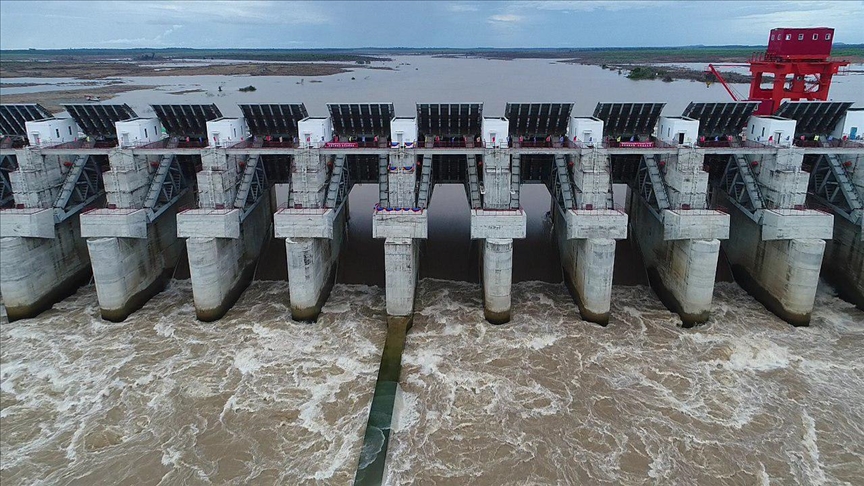How Local Businesses Can Benefit from Cambodia’s Growing Hydropower Industry

Cambodia’s energy sector has undergone significant transformation in recent years, with hydropower emerging as a key driver of electricity production. As the country continues to invest in renewable energy sources, local businesses stand to gain from the increasing availability of cost-effective and sustainable power. From reduced operational costs to new business opportunities, the expansion of hydropower infrastructure presents numerous advantages for enterprises across various industries.
This article explores the ways in which Cambodian businesses can leverage the hydropower industry for growth and long-term success.
Lower Energy Costs for Businesses
One of the primary benefits of hydropower for businesses is the reduction in electricity costs. Hydropower is generally more cost-effective than fossil fuel-generated electricity, leading to lower utility bills for commercial enterprises.
- Competitive Electricity Pricing: With hydropower providing a significant portion of Cambodia’s electricity supply, businesses can expect more stable and potentially lower energy prices over time.
- Increased Profit Margins: Lower electricity expenses translate to higher profit margins, allowing businesses to reinvest in operations, staff, and expansion.
- Industries That Benefit the Most: Manufacturing plants, retail stores, and hospitality businesses experience significant cost reductions due to their high energy consumption.
For instance, textile factories in Cambodia, which require substantial energy for production, have reported reduced operational costs due to the increased availability of hydropower.
Reliable and Sustainable Power Supply
Energy reliability is crucial for businesses that depend on consistent power to maintain operations. Hydropower offers a more stable energy source compared to alternatives, reducing the frequency of power outages and disruptions.
- Grid Stability: Hydropower plants provide a steady flow of electricity, reducing dependence on imported fuel and mitigating power shortages.
- Industries That Rely on Continuous Power: Businesses in healthcare, IT, and manufacturing particularly benefit from reliable electricity, ensuring smooth operations and uninterrupted services.
- Sustainability and Corporate Responsibility: Companies that use renewable energy sources can enhance their brand reputation by promoting sustainability. Consumers and investors are increasingly favoring businesses that prioritize environmental responsibility.
New Business Opportunities in the Hydropower Sector
Cambodia’s growing hydropower industry is creating numerous business opportunities, particularly for small and medium-sized enterprises (SMEs) that can provide services and products to support the sector.
- Infrastructure Development: Construction companies, engineering firms, and logistics providers can capitalize on hydropower-related projects.
- Supply Chain Growth: Businesses involved in manufacturing equipment, maintenance services, and transportation can find lucrative contracts in the hydropower sector.
- Eco-Tourism and Sustainable Business Models: With hydropower supporting Cambodia’s green energy transition, eco-friendly businesses and tourism ventures can thrive by promoting sustainable travel experiences.
One example is the rise of eco-resorts near hydropower dam sites, which offer sustainable accommodations and attract environmentally conscious tourists.
Foreign Investment and Business Expansion
The development of Cambodia’s hydropower infrastructure is also attracting foreign direct investment (FDI), boosting business growth and economic development.
- Increased FDI in the Energy Sector: International companies are investing in Cambodia’s renewable energy projects, creating partnership opportunities for local businesses.
- Growth of Special Economic Zones (SEZs): SEZs benefit from stable energy supplies, making them attractive locations for manufacturing and industrial businesses.
- Attracting Multinational Companies: With reliable and affordable electricity, more multinational corporations may establish operations in Cambodia, creating demand for local suppliers and service providers.
For example, international garment manufacturers setting up factories in Cambodia benefit from stable energy sources, reducing production costs and ensuring consistent output.
Challenges and Considerations for Businesses
While the expansion of hydropower brings many benefits, businesses must also consider potential challenges and risks associated with this energy source.
- Environmental and Social Concerns: Hydropower projects can impact local communities and ecosystems. Businesses should be aware of environmental regulations and support sustainable practices.
- Seasonal Fluctuations: Hydropower generation depends on water availability, which can vary seasonally. Businesses may need backup energy solutions during dry periods.
- Government Policies and Energy Pricing: Future policy changes could affect electricity tariffs and energy regulations. Staying informed about policy shifts is crucial for businesses planning long-term investments.
Conclusion
Cambodia’s growing hydropower industry presents a wealth of opportunities for local businesses. From reducing energy costs to enhancing sustainability and attracting foreign investment, the benefits are substantial. As the country continues to expand its renewable energy capacity, businesses that strategically position themselves within the hydropower ecosystem can gain a competitive advantage.
To capitalize on these opportunities, businesses should stay informed about industry developments, explore partnerships within the energy sector, and adopt sustainable practices that align with Cambodia’s renewable energy goals.
Are you a business owner looking to benefit from Cambodia’s expanding hydropower industry? Share your thoughts and experiences in the comments below!



